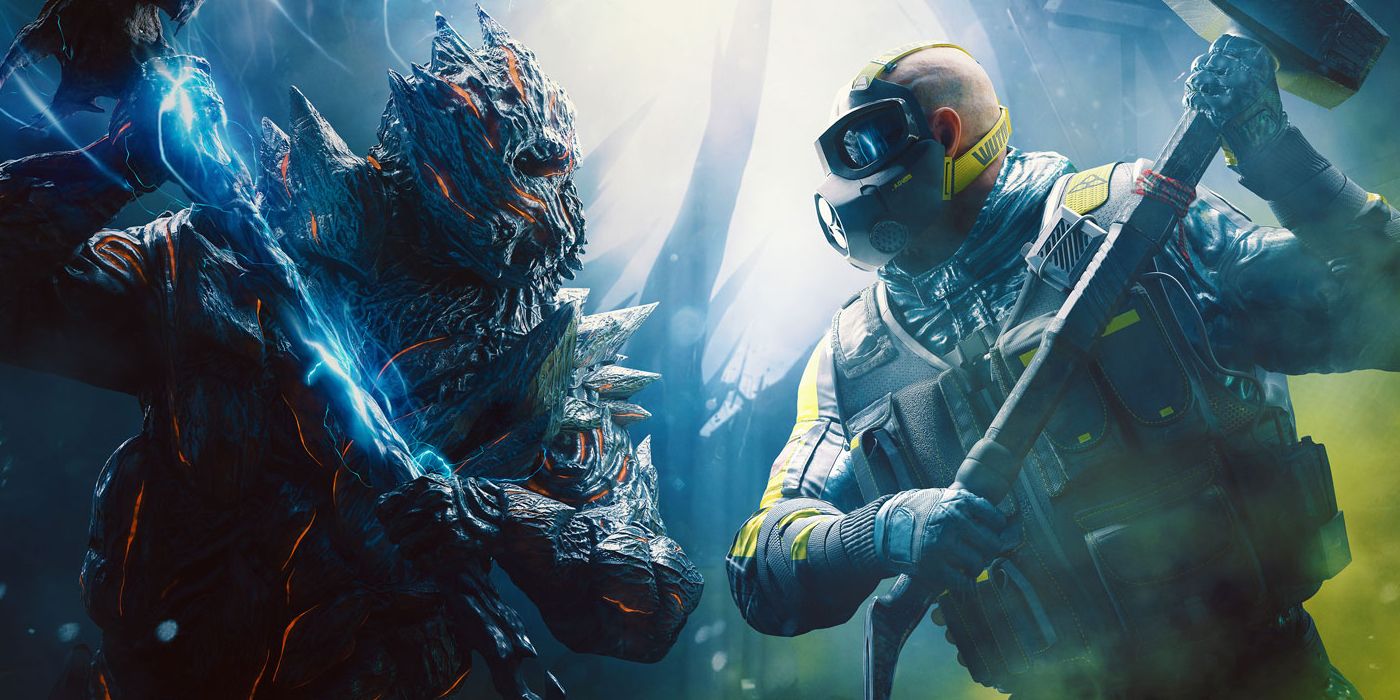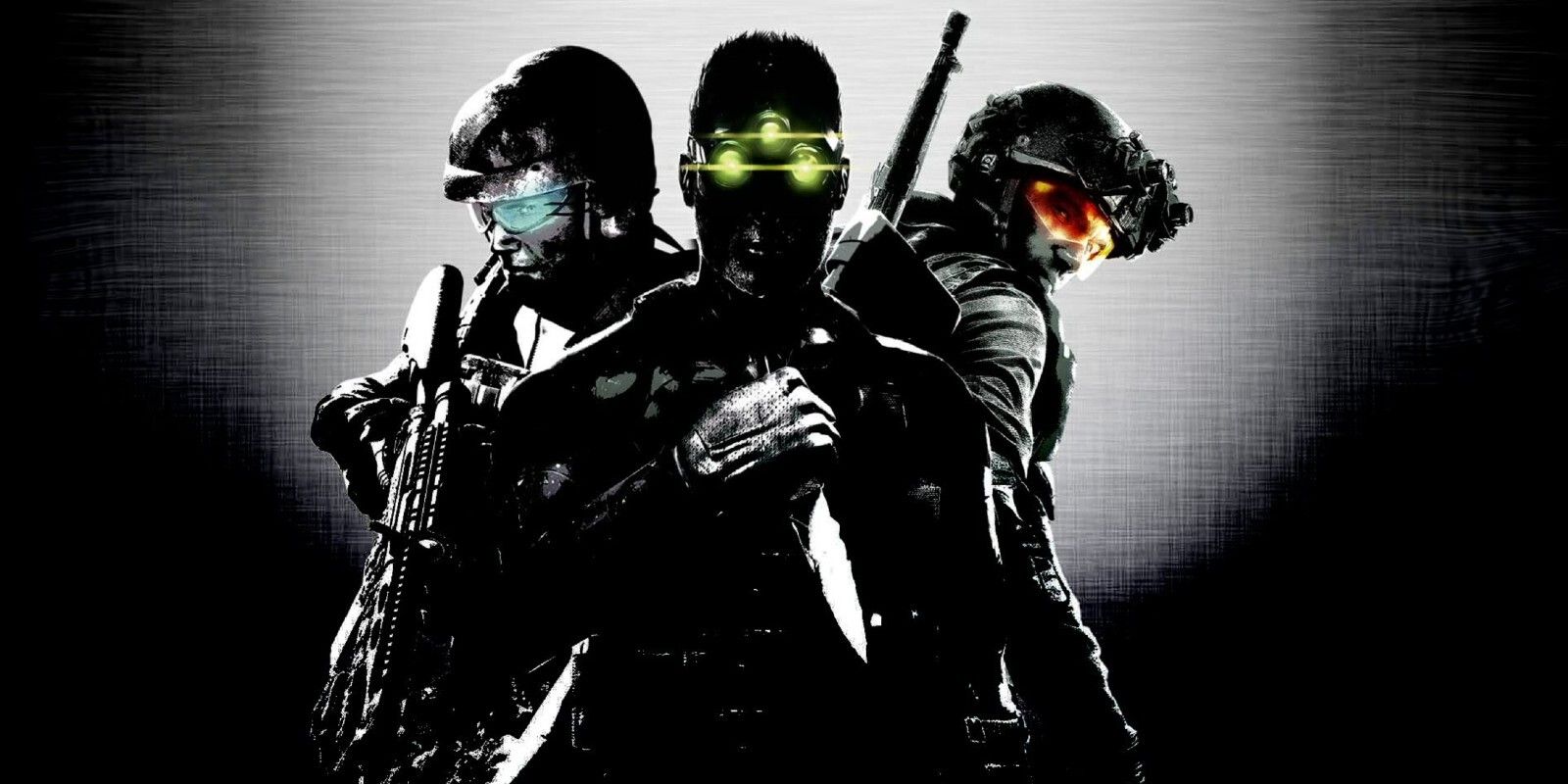The direction of the Tom Clancy brand has taken a bizarre turn under Ubisoft over the last several years, with titles like Rainbow Six Extraction seeming to mark an end to what made the games good in the first place. In the past, the Tom Clancy brand focused more on near-future-set tactical shooters while delivering a suspenseful narrative. Like Clancy's books, the games also acted as social commentary on the post-Cold War era, depicting geopolitical tension and armed conflict in titles like Splinter Cell, Rainbow Six, and Ghost Recon. Moreover, the gameplay mixed up and improved upon the general mechanics of shooters, both third and first-person, delivering a tactical focus that has been sorely lacking over the last decade.
However, games like Rainbow Six Extraction - a cooperative multiplayer game that tasks players to deal with a parasite alien called an Archaean - shift from the traditional gameplay and narrative elements that the Tom Clancy games were previously known for. Rainbow Six Extraction already looks dated thanks to it recycling assets from Rainbow Six Siege, but it isn't the only title that's heralded the decline of the Tom Clancy series. Over the last decade, entries in the Splinter Cell and Ghost Recon franchises have slowly rolled back their tactical elements, focusing more on linear action along the lines of Call of Duty. This has made the Tom Clancy brand less unique, and with games like Ghost Recon Frontlines and Tom Clancy's XDefiant occupying the battle royale and hero shooter genres respectively, it seems as though that's only going to continue.
Rainbow Six Extraction and other recent Tom Clancy properties are incredibly distant from the games the franchise made its name on in the early 2000s. Slowly but surely, Ubisoft's Tom Clancy games have lessened their realistic elements and moved further into sci-fi territory. Extraction typifies this perfectly; previously, Rainbow Six focused on counter-terrorism officers taking down different organizations, but now they're fighting aliens. This has shifted the Tom Clancy brand from what it used to be - contemporary military thrillers - to a series that mimics popular gaming trends.
Why Good Tom Clancy Games Are Gone (For Now)
Past Tom Clancy games like Rainbow Six: Vegas and Ghost Recon Advanced Warfighter boasted immersive, cooperative gameplay with compelling storylines. The Tom Clancy games today however are much less unique, with titles like Ghost Recon Wildlands and Breakpoint taking on open world and looter shooter elements in the wake of Destiny's success, and Rainbow Six Extraction seemingly looking to Back 4 Blood and other co-op horror titles with its sci-fi premise. The Tom Clancy games were always versatile, but Ubisoft has taken that versatility and shaped it in such a way that the newer games are unrecognizable compared to their predecessors.
Although Rainbow Six Extraction connects to R6 Siege, it feels as though it's less in service of world-building and more in ensuring the spin-off has popular characters for players to latch onto. Siege, despite its increasingly outlandish operators, is still a tactical FPS at the end of the day, and one with a focus on PvP combat. Spinning it off into a PvE horror shooter has come off as a left-field turn, despite Siege's brief horror-themed Outbreak event from 2018.
While the indefinite delay of the battle royale spinoff, Ghost Recon Frontline, suggests Ubisoft's shifting interest, fans have just cause to be suspicious. The main foundation of the Tom Clancy brand is modern tactical shooters that skirt the line of science fiction rather than being enveloped by it. Spinoffs like Rainbow Six Extraction and Ghost Recon Frontline feel like the end of what made Tom Clancy games good, and there are plenty of ways Ubisoft can mess up Splinter Cell's remake too. Nothing good lasts forever, and games like Rainbow Six Extraction could permanently mark the end of good Tom Clancy games.


